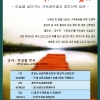Challenge 21(원문)1)
“Challenge 21" signifies responsibilities that YMCAs might assume in the new millennium according to their specific needs and possibilities. The potential agenda-orientations in Challenge 21 clearly position the YMCA in relation to wider societal happenings. It was consciously not titled as a Statement of Mission - such a statement might emerge as a consequence of a continuing process. For the time being, Challenge 21 was felt as a step forward in renewing an understanding of the implications of mission in our times, with the Paris Basis maintained as the foundation of YMCA mission. Even as the world we live in becomes more and more complex, we are obliged to find ways in which we remain geared to the times, but equally or more importantly, anchored to the rock.
Affirming the Paris Basis adopted in 1855, as the ongoing foundation statement of the mission of the YMCA, at the threshold of the third millennium, we declare that the YMCA is a world-wide Christian, ecumenical, voluntary movement for women and men with special emphasis on and the genuine involvement of young people and that it seeks to share the Christian ideal of building a human community of justice with love, peace and reconciliation for the fullness of life for all creation.
Each member YMCA is therefore called to focus on certain challenges which will be prioritized according to its own context. These challenges which are an evolution of the Kampala Principles adopted in 1973, include:
a. Sharing the good news of Jesus Christ and striving for spiritual, intellectual and physical well-being of individuals and wholeness of communities.
b. Empowering all, especially young people and women to take increased responsibilities and assume leadership at all levels and working towards an equitable society.
c. Advocating for and promoting the rights of women and upholding the rights of children.
d. Fostering dialogue and partnership between people of different faiths and ideologies and recognizing the cultural identities of people and promoting cultural renewal.
e. Committing to work in solidarity with the poor, dispossessed, uprooted people and oppressed racial, religious and ethnic minorities.
f. Seeking to be mediators and reconcilers in situations of conflict and working for meaningful participation and advancement of people for their own self-determination.
g. Defending God's creation against all that would destroy it and preserving and protecting the earth's resources for coming generations. To face these challenges, the YMCA will develop patterns of co-operation at all levels that enable self-sustenance and self-determination.
- Adopted at the 14th World Council of YMCAs, Frechen, Germany, 1998 -
1) 제14차 세계YMCA 대회, Adopted at the 14th World Council of YMCAs, Frechen, Germany, 1998
.jpg)











.jpg)
